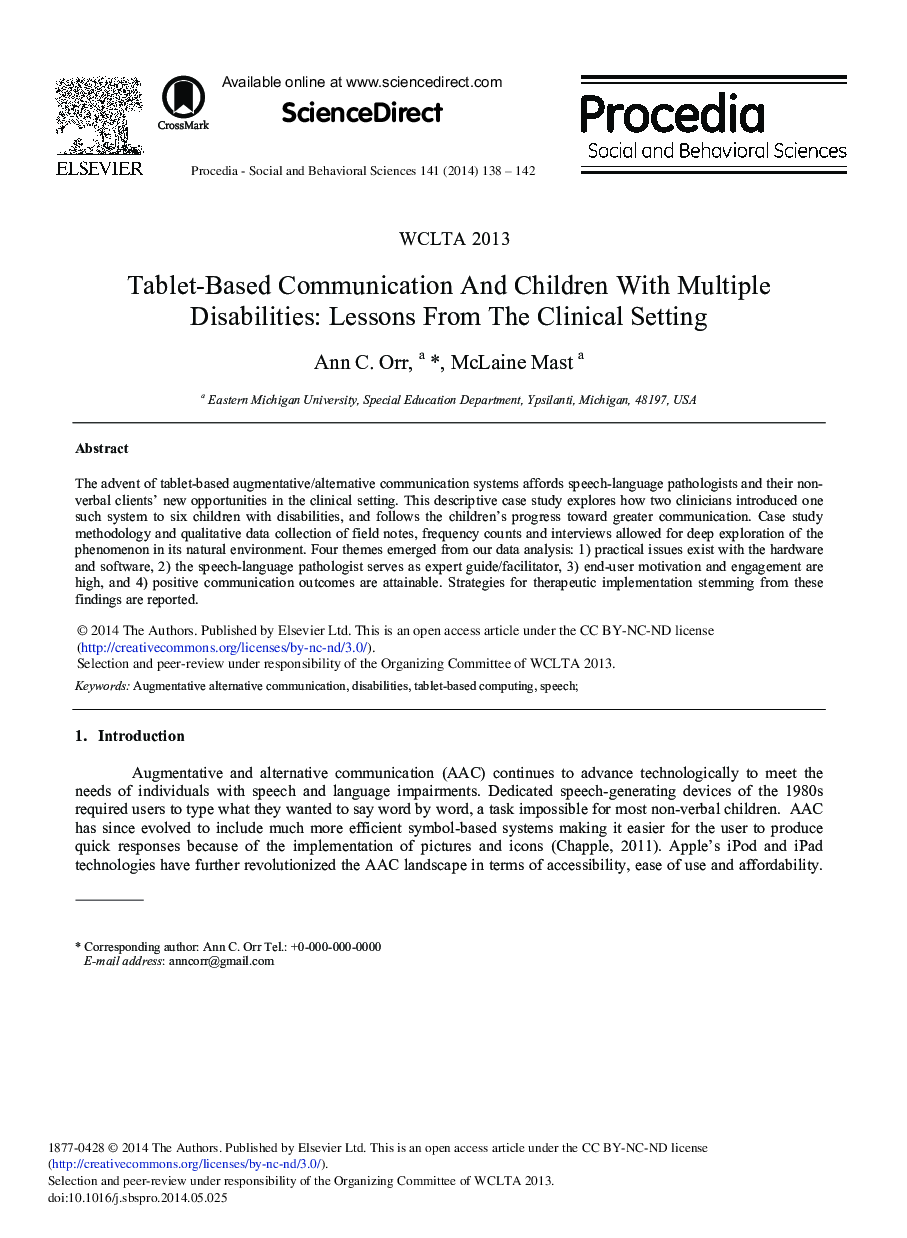| Article ID | Journal | Published Year | Pages | File Type |
|---|---|---|---|---|
| 1113220 | Procedia - Social and Behavioral Sciences | 2014 | 5 Pages |
The advent of tablet-based augmentative/alternative communication systems affords speech-language pathologists and their non- verbal clients’ new opportunities in the clinical setting. This descriptive case study explores how two clinicians introduced one such system to six children with disabilities, and follows the children's progress toward greater communication. Case study methodology and qualitative data collection of field notes, frequency counts and interviews allowed for deep exploration of the phenomenon in its natural environment. Four themes emerged from our data analysis: 1) practical issues exist with the hardware and software, 2) the speech-language pathologist serves as expert guide/facilitator, 3) end-user motivation and engagement are high, and 4) positive communication outcomes are attainable. Strategies for therapeutic implementation stemming from these findings are reported.
